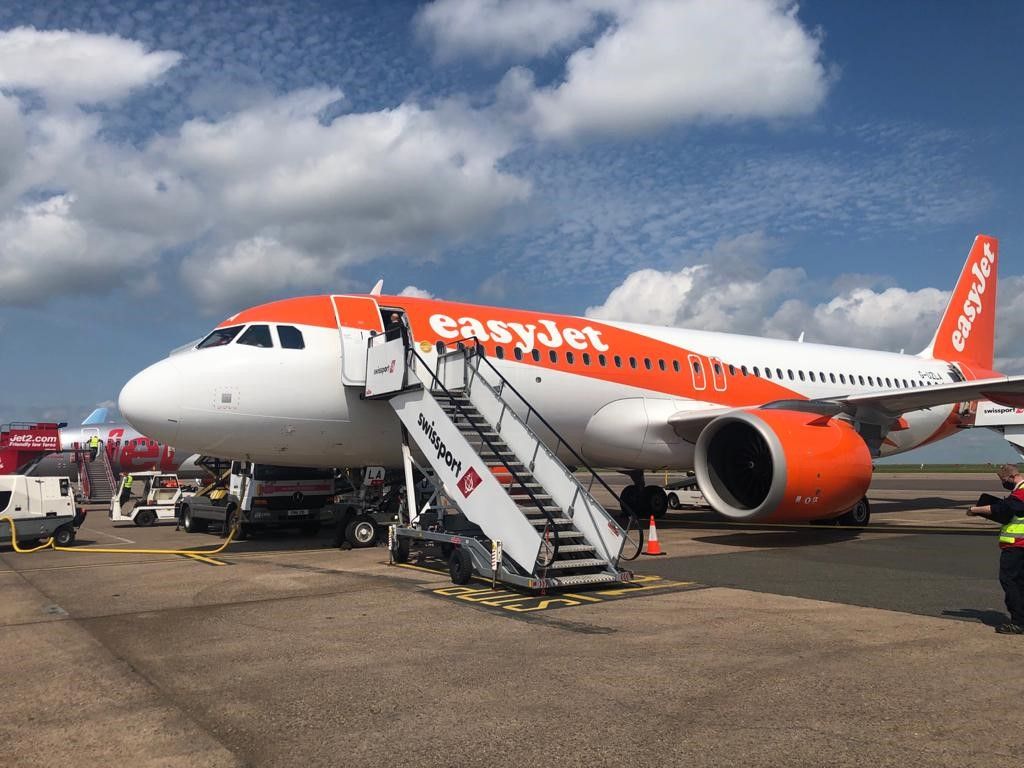easyJet’s significant expansion into the UK’s domestic market may or may not be a long-term proposition. The airline’s CEO told Simple Flying that these routes are very much dependent on the demand persisting, and that it remains to be seen how long they will continue.
Domestic UK is demand-dependent
easyJet surprised the UK aviation market with its announcement of a huge domestic expansion back in June. The airline had launched an additional 12 domestic routes, all starting in early July, giving it a total of 55 domestic services for the summer.
While the airline was clearly betting on significant demand from the staycation market for this year, the question remains over whether easyJet will stay on these routes longer term. Airports including Belfast City, East Midlands and Leeds Bradford all rejoined easyJet’s network after years of absence, but will they be dropped again?
Simple Flying spoke to easyJet CEO Johan Lundgren about this, but he indicated that the jury is still out in terms of the longevity of these services. He said,
“It remains to be seen. A number of these routes are routes that are new to us, ones that we have taken to replace other carriers … we will be there and will make it available if the demand continues to be there.â€
For summer 2021, many British families have given up on a foreign holiday, opting instead to explore their home country through camping, holiday lets and city breaks. Lundgren doesn’t expect this trend to persist, noting the inevitable pent-up demand that is likely to bubble over once the UK is fully released.
“There’s no doubt that, because of the restrictions that are in place on international travel, there's a higher proportion of people who've been choosing to have their holidays spent in the UK. I know a lot of them can't wait to travel overseas next time; we will monitor where the demand goes.â€
For easyJet, the recovery from COVID has been incredibly measured and thought out. While other low-costs have thrown capacity at any perceived gap in the market, Lundgren’s approach has been to only fly where the services will make a positive contribution to the business.
“That's one of the great things of being an airline is that you actually have the ability to fly where people want to go,†the CEO quipped.
Stay informed: Sign up for our daily and weekly aviation news digests.
Flexibility is key
In the hopes of a more relaxed traveling environment by the summer, easyJet had put everything in place to operate multiple services to the hottest holiday destinations in Europe. The airline opened seasonal bases, loaded in capacity, but had the rug pulled from under its feet by the UK’s ‘green list’ and other restrictions. Thanks to the flexibility in the easyJet strategy, the airline successfully directed that capacity elsewhere, as Lundgren explained,
“Another example of the flexibility we have is that we have opened seasonal bases. We have bases that we only operate now in the summer in Malaga, in Faro in Portugal and in Palma. We had a number of routes that we intended to serve into the UK from these bases that, because of the restrictions, unfortunately we didn't do. So, we moved some of that into Scandinavia, Amsterdam, Berlin, for example, with great success.â€
For the UK, it’s all about supply and demand. Those domestic routes may stay, if demand is there, or could be pulled off if everyone heads to the continent for their jollies next year. Lungren stated,
“Where the demand is, where we can make a positive return on that, and when it comes back to having those leading positions at these airports, then we will look to fulfil it.â€


